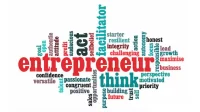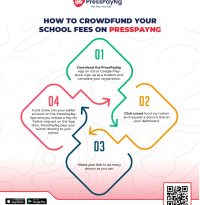Making Your Personal Brand Work For You: The How-To
A brand, in essence, is a type of product or individual that operates under a particular name or identification. A brand is also a way to identify to whom a product may belong to, or where its story originates from, and who is the author of it. We are probably all familiar how cattle is branded- this is so people know who the livestock belongs to, it’s a way of belonging, it’s a way of knowing who is who, and what is what.
Branding is crucial to the way we are perceived, and how likely people are to buy into your vision and purchase your products. Every detail of the brand matters- it determines the expectations customers have of you, it creates those memories that can either hinder or help depending on your delivery of your customer service, as well as having a solid product which delivers on what it’s supposed to do.
Now more than ever, competition and choice is rife, and none of us can rest on our laurels. We have to accept that if we sell anything, we are a brand, whether we like it or not. Indeed, our ability to be a relevant and heartfelt brand is going to be the difference between stealing a march, and losing significance, fundamentally losing business, or, in the worst case, no longer being in business.
When considering my own brand, I am very mindful of the one word or essence I want people to take away when interacting with my products and the resources I provide. It’s so important that we double down on not only our personal characteristics, but also our company’s objectives, and what it is we want to give, and how we want to serve our customers. Once we can identify our own goals (which have to be rooted in the greater good of our customer), then we can start to sharpen and improve the focus and contrast of our own brand.
One man who knows a thing or two about branding is Gary Doherty, the founder of Think Network and Be Seen PR. Gary has worked with several successful and ambitious entrepreneurs, and he knows a thing or two about storytelling being at the center of a brand. According to Gary, your story or your company’s story is one key part of trading- it’s what people remember, it’s how we build synergy and rapport, it’s how we create a positive association with the essence of our own wisdom and value with our audience. Here are excerpts from my conversation with Gary:
Why is storytelling such a key component of branding?
For me, it is all about the feels! How are we making people feel? What emotion are you triggering in your audience? Storytelling executed correctly allows you to connect with your audience on a deeper level, even an emotional level. If you are successful with this, your audience will understand and know more about you, your business, and that has to a good thing, right? I’ve taken this approach when coaching individuals for viral TEDx Talks, and it works!
What are the crucial ways to tell our story effectively, and how does this harness a strong brand?
Be very clear in your message and story. Don’t waffle, and be precise and concise. Open strongly with intention and purpose when telling your story. Hook your audience, and give them a reason to read or listen on. Hook is the key word here.
Now that you have them, give the gift of gold: wisdom, knowledge, takeaways. Remember this, your audience is listening to or reading about you for them, not you. When you realize that, it’s a game changer. A serving mentality will be subconsciously appreciated by your audience, which, in turn, will determine how they react.
Another great way to share your story is find examples within your story that are very common experiences, and when you share them, and your audience understands/connects as they have likely experienced it too. Your story thus becomes a shared experience. Breakthrough! You have now connected you, your brand, with your audience. Beautiful! You now have trust.
How do we identify and find our own message and story to ensure we are on brand, and that the brand represents the essence of what content we are creating?
How does your own message and story have relevance to your brand and your audience’s needs and wants? If it’s not relevant, bin it. Think of what your customer’s wants and needs to hear and read, and not just what you want to tell them. Quite often, on reflection, they can be very different messages. What values do you personally live by? Are these shining through in your message and brand? For example, mine are about adding value. If I cannot add value in anything, I don’t do it. This is reflected in my personal brand, service, and offerings. Identify your non-negotiable values, and stick to them in your branding, your storytelling, your content, your product, your service, and your offering. Your tribe will connect and appreciate this.
In a world full of ever-improving storytellers, how do we evolve and stay relevant to ensure our own brand stands out, and is both welcomed and desired in the marketplace?
I strongly feel that being self-aware of who we are at any given time as we mature, change, and hopefully, get wiser [is important]. Your personal brand or business’ brand must evolve also to reflect this. Otherwise, for me, you lose authenticity. What is happening in the marketplace? How does your audience prefer the content? Is it more video than blog posts, is it email marketing rather than Instagram Lives? Continually go to mark, and get feedback. Again, it’s about knowing what does your audience want, not just what you naturally want to give them. What’s trending? You don’t have to reinvent the wheel; you just have to make your wheel turn more efficiently than before. In short, focus on continuous improvement on a daily basis, and you won’t be far way, in my humble opinion. I recently was awarded a “Businessman of the Year 2022” title in Northern Ireland, and when they called out my name, they said “This man has successfully reinvented himself time and time again.” To me, I had continually evolved, stayed relevant, continually improved, and been creative and innovative at every opportunity.
When considering your own brand, how have you effectively used storytelling and association to build rapport, and capture a piece of the marketplace through the work you do?
I have built an engaged enthusiast and supportive following over platforms including Twitter, LinkedIn, Facebook, Instagram, WhatsApp, Telegram, and YouTube by firstly being omnipresent. This approach divides opinion, and many have different views on this. For me, it worked; I threw the kitchen sink at it, so to speak! I ensured I was on all platforms, and that I was being seen and heard by a lot of people. I have such desire to continually improve and connect with likeminded people that I relentlessly turn up every single day.
I reply to every single comment online. After all, you wouldn’t ignore someone in real life that spoke to you, would you? Plus, it’s important for the algorithms, and it improves the visibility of your content. Embrace collaboration, and try not to have a competitive mindset with other people. You might be surprised by the opportunities you’ll find with other like minds when you have this approach. You’ll be right perceived as some who adds value, is supportive, and is generally good to do business with.
I demonstrate a lot of gratitude to my audiences as I feel this is so important. This is heartfelt, genuine, and truly represents the person I am. Are you representing the person you are?
Source: entrepreneur.com
Cc: Mark Sephton
#PressPayNg#EduSAVINGS#EduLOANS#EduSURE#INTERNSHIP#SCHOLARSHIP#EduHEALTHMAINTAINANCE#ENTERPRENUERSHIP#TERTIARY#EDUCATION#TUITION#FEES#UNIVERSITY#POLYTECHNIC#MONOTECHNIC#FELLOWSHIP#COLLEGEOFEDUCATION#HOLIDAYJOBS#SOFTSKILLSTRAINING




